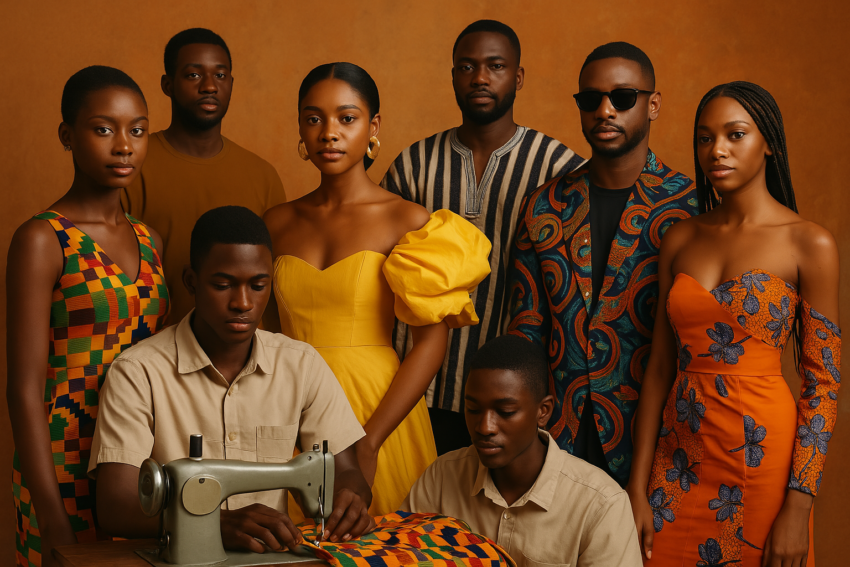Ghana is fast becoming a global fashion hub, blending traditional roots with modern flair. From vibrant kente to edgy streetwear, Ghanaian fashion is now commanding attention across the continent—and around the world.
But what’s really driving this rise? A combination of cultural pride, digital exposure, music influence, tourism, and a strong creative spirit. Ghana isn’t just making clothes; it’s telling stories, reclaiming identity, and exporting culture through style.
Let’s explore why Ghana’s fashion industry is on fire right now.
1. The Internet Has Amplified Ghana’s Creativity
Social media platforms like Instagram, TikTok, and Pinterest have given Ghanaian designers a global stage. Young creatives are showcasing: Handmade pieces, Afro-fusion designs, Sustainable and ethical fashion
Platforms like Etsy, Shopify, and Afrikrea allow local designers to sell globally without leaving Ghana.
The world can now see—and buy—Ghanaian creativity in real-time.
2. Afrobeat Culture is Fashion’s Best Friend
Ghanaian and Nigerian artists are rocking locally made fashion in music videos, tours, and award shows. From Stonebwoy and Sarkodie to Ayra Starr and Burna Boy, fashion and music now move together. Fashion trends are now influenced by:
- Music video aesthetics
- Tour outfits
- Brand collaborations
Afrobeats has made African fashion aspirational, cool, and global.
3. The Year of Return & AfroFuture Festival.
The Year of Return (2019) brought tens of thousands of diasporans and Black celebrities to Ghana. Events like AfroFuture (formerly Afrochella) continue to attract huge crowds every December. These events create: A booming fashion economy, Platforms for local designers to showcase, sell, and connect
Global influencers bringing Ghanaian designs back to the West Tourism meets fashion. Culture meets commerce.
4. Fashion as Cultural Expression & Identity
Young Ghanaians are reclaiming traditional wear like: Kente, Batakari, Wax print (Ankara)But now it’s being modernized with streetwear, high fashion, and gender-neutral designs. Fashion isn’t just style—it’s identity, storytelling, and resistance.
Ghanaian fashion is becoming a form of cultural power and pride.
5. Rise of Local Brands & Entrepreneurs
A new wave of designers is emerging: Christie Brown, Studio 189, Larry Jay, Ajabeng, Free the Youth, and more These brands are: Getting international recognition, showcasing at global fashion weeks, Partnering with global influencers and platforms. Ghanaian brands are not just following trends—they’re setting them.
6. Fashion Education & Skill Development
Fashion schools and creative hubs in Accra, Kumasi, and Tamale are training the next generation. Tailors are evolving into designers, stylists, and entrepreneurs. Youth are seeing fashion as a career path, not just a side hustle. This is creative industry meets economic empowerment.
7. Diaspora Collaboration & Global Exposure
Diasporans are investing in or partnering with local fashion houses. Crossover between Ghanaian designers and global media, stylists, and celebs is increasing. Fashion films, editorials, and exhibitions are featuring Ghanaian styles globally. Ghana is no longer just exporting cocoa—we’re exporting culture through clothing.
CONCLUSION
The fashion boom in Ghana isn’t just about clothes—it’s about culture, creativity, and confidence.
It’s driven by:
- Internet exposure
- Afrobeats influence
- Cultural tourism (Year of Return, AfroFuture)
- A thriving local fashion scene
- Pride in African identity and expression
Ghana is not just participating in the global fashion conversation—we’re leading it.


